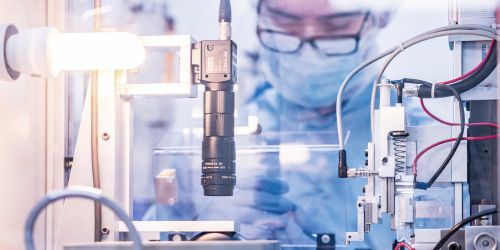Outsourcing to medical contract manufacturers (MCMs) has become an integral part of the healthcare industry, significantly shaping the way medical devices and products are developed, produced, and brought to market. The evolution of this outsourcing practice is marked by advancements in technology, regulatory changes, and shifting market demands.
This blog explores the journey of MCM outsourcing, highlighting key milestones and current trends that define this dynamic field.
 
The Early Days of Medical Contract Manufacturing
In the early stages, medical contract manufacturing was primarily driven by the need for cost reduction. Healthcare companies sought ways to produce high-quality medical devices without investing heavily in their own manufacturing facilities. This led to the rise of third-party manufacturers who could offer specialised production capabilities at lower costs.
During this period, outsourcing was mostly limited to simple, low-risk components. The primary focus was on achieving cost efficiency while maintaining acceptable quality standards. Regulatory requirements were less stringent compared to today’s standards, allowing for a more straightforward outsourcing process.
 
Technological Advancements and Increased Complexity
As technology advanced, the scope of outsourcing expanded significantly. The development of complex medical devices, such as implantable devices, diagnostic equipment, and advanced surgical instruments, required specialised expertise and sophisticated manufacturing processes. Medical contract manufacturers began to invest in cutting-edge technologies, including precision machining, additive manufacturing (3D printing), and automated assembly lines.
The introduction of these advanced technologies allowed MCMs to produce highly intricate and reliable medical devices. This shift not only improved the quality and functionality of medical products but also enabled faster production cycles and reduced time-to-market.
 
Regulatory Changes and Quality Assurance
The evolution of medical contract manufacturing has been heavily influenced by changes in regulatory requirements. Regulatory bodies, such as the FDA in the United States and the European Medicines Agency (EMA), have implemented stringent guidelines to ensure the safety and efficacy of medical devices. These regulations necessitated a more rigorous approach to quality assurance and compliance.
Medical contract manufacturers adapted by establishing robust quality management systems (QMS) and obtaining certifications such as ISO 13485. These certifications demonstrate a manufacturer’s commitment to maintaining high-quality standards and regulatory compliance. As a result, healthcare companies gained greater confidence in outsourcing critical components and entire devices to MCMs.
 
The Rise of Strategic Partnerships with Medical Contract Manufacturers
In recent years, the relationship between healthcare companies and MCMs has evolved from transactional to strategic partnerships. Rather than simply outsourcing production, companies now collaborate closely with medical contract manufacturers throughout the product lifecycle. This includes early-stage design and development, prototyping, clinical trials, and large-scale production.
Strategic partnerships offer several benefits, including shared expertise, risk mitigation, and accelerated innovation. By leveraging the specialised knowledge and capabilities of MCMs, healthcare companies can focus on their core competencies, such as research and development, while ensuring efficient and high-quality manufacturing processes.
 
Current Trends and Future Outlook
Today, the outsourcing of medical device manufacturing is characterised by several key trends:
1. Customisation and Personalisation: With the rise of personalised medicine, there is an increasing demand for customised medical devices tailored to individual patient needs. MCMs are investing in technologies like 3D printing to meet this demand.
2. Sustainability: Environmental sustainability is becoming a priority in the healthcare industry. MCMs are adopting eco-friendly manufacturing practices, such as using recyclable materials and minimising waste, to align with global sustainability goals.
3. Advanced Materials: The development of new materials, such as biocompatible polymers and advanced ceramics, is driving innovation in medical device manufacturing. MCMs are at the forefront of incorporating these materials into their production processes.
 
Strategic Imperative for Healthcare Companies
Outsourcing to medical contract manufacturers has evolved from a cost-saving measure to a strategic imperative for healthcare companies. The advancements in technology, regulatory changes, and the rise of strategic partnerships have all contributed to this transformation. As the industry continues to embrace digitalisation and innovation, the future of medical contract manufacturing holds great promise for improving patient outcomes and driving healthcare advancements.
For more information about outsourcing your next project to Europlaz, please contact us today.
 





